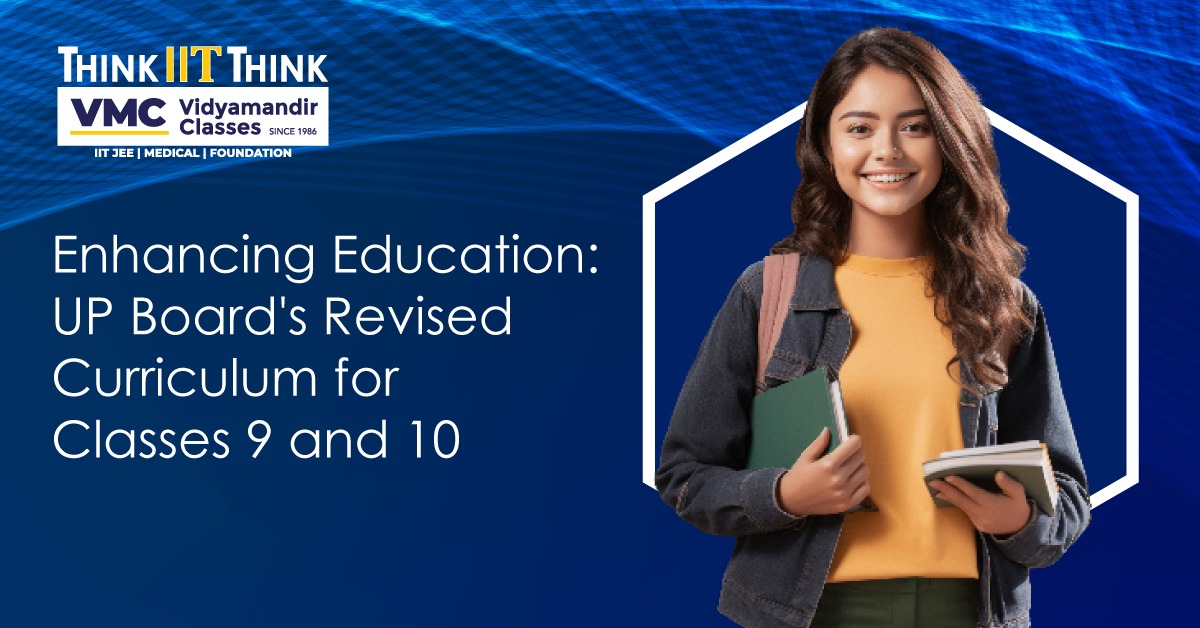Enhancing Education: UP Board’s Revised Curriculum for Classes 9 and 10
 Posted On
Posted On
144 total views, 1 views today
The Uttar Pradesh State Board of High School and Intermediate Education, also known as the Uttar Pradesh Board, is initiating a transformative path for its students in line with the National Education Policy (NEP) of 2020. Beginning from the academic session 2025-26, significant changes will be introduced in the curriculum for classes 9 and 10, impacting over 50 lakh students across more than 27,000 affiliated schools.
Expanded Curriculum and Language Emphasis
One of the key revisions is the expansion of subjects that students will study. Currently, students in class 9 face examinations in six subjects; however, this will be broadened to ten subjects. This adjustment aims to provide a more comprehensive educational experience, fostering holistic development and deeper understanding across various disciplines.
Another notable change is the incorporation of the three-language formula, which serves as a core component of the NEP. From the 2025-26 session onward, every student will be required to study three languages. Hindi will be mandatory for all students, while the other two languages can be chosen from a diverse array of options. These options include Sanskrit, Gujarati, Urdu, Punjabi, Bengali, Marathi, Assamese, Oriya, Kannada, Kashmiri, Sindhi, Tamil, Telugu, Malayalam, Nepali, Pali, Arabic, Persian, and English. This initiative not only promotes linguistic diversity but also equips students with language skills that are increasingly valuable in a globalized world.
Core Subjects and Electives
In addition to language studies, the revised curriculum emphasizes core subjects essential for academic and practical knowledge. Mathematics, Science, and Social Science will remain compulsory subjects, ensuring a strong foundation in critical areas of study.
Furthermore, students will have the flexibility to choose one subject from a variety of electives. Students have the option to choose from subjects such as Home Science, Anthropology, Commerce, NCC, Computer, Agriculture, or Environmental Science. This flexibility allows them to customize their education based on their interests and career goals, promoting a more personalized learning journey.
Comprehensive Development through Arts, Physical Education, and Vocational Skills
Recognizing the importance of holistic development, the new curriculum integrates Art Education, Physical and Health Education, and Vocational Education as integral components. Art Education offers options such as painting, music, singing, or music playing, allowing students to explore and nurture their creative talents.
Physical and Health Education encompasses Moral Education, Yoga, Sports, and Physical Education, promoting not only physical fitness but also character development and overall well-being.
Vocational Education, a critical aspect of the revised curriculum, offers a wide array of practical subjects with real-world applications. With 31 subjects to choose from, students can delve into areas such as carpentry, plumbing, electrical work, hospitality, healthcare, and more. This initiative aims to equip students with skills that are directly applicable in the workforce, enhancing their employability and entrepreneurial spirit.
Assessment and Grading System
To align with the holistic approach to education, the assessment structure has been revised as well. Subjects like Physical Education, Art Education, and Vocational Education will be assessed through a combination of written examinations and internal assessments. This balanced approach ensures that students’ practical skills and theoretical knowledge are both evaluated effectively.
Moreover, the total marks for the high school marksheet will increase significantly, from 600 to 1,000 marks. Each subject will now carry 100 marks, with 80 marks allocated for the final examination and 20 marks for internal assessment. This revision aims to provide a more detailed and nuanced evaluation of students’ academic performance.
Implementation and Future Prospects
The Uttar Pradesh Board has solicited feedback from various stakeholders to ensure a phased and effective implementation of these curriculum changes. This inclusive approach reflects a commitment to refining and improving the educational experience for students across the state.
Looking ahead, these reforms are poised to not only enhance academic rigor but also nurture a generation of students equipped with diverse skills, critical thinking abilities, and a well-rounded worldview. By embracing the principles of the NEP 2020, the Uttar Pradesh Board is laying a robust foundation for the holistic development and future success of its students.
In conclusion, the forthcoming changes in the curriculum for classes 9 and 10 under the Uttar Pradesh Board herald a new era in educational excellence and inclusivity. With an expanded subject range, emphasis on multilingualism, and integration of practical skills, the revised curriculum aims to empower students to excel academically, creatively, and professionally in an increasingly dynamic world.




